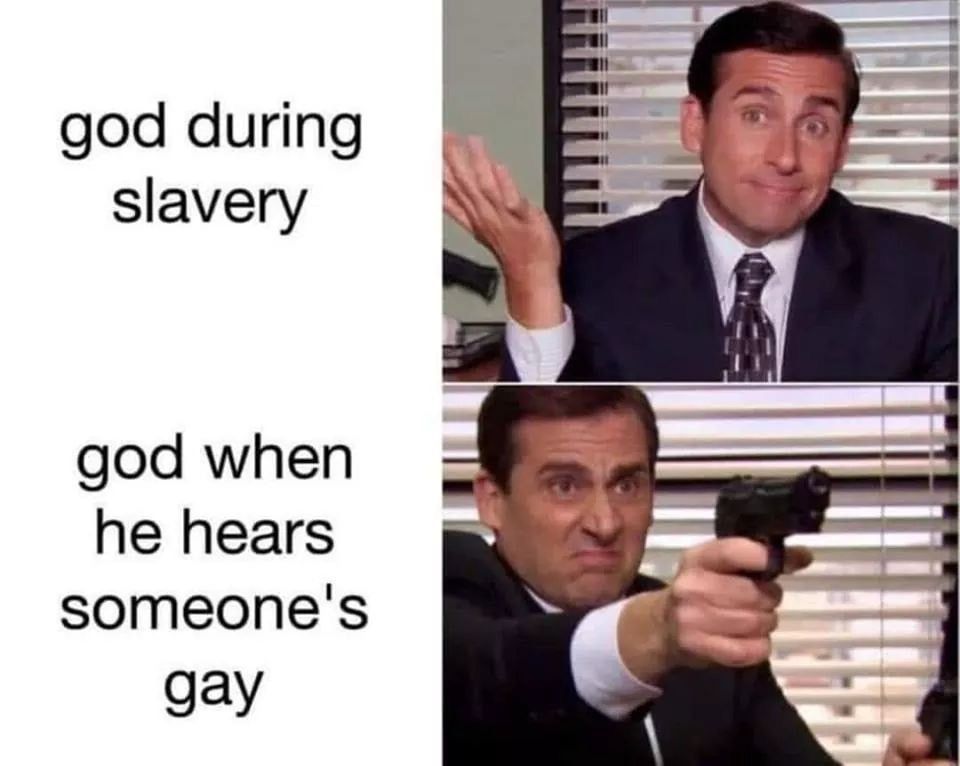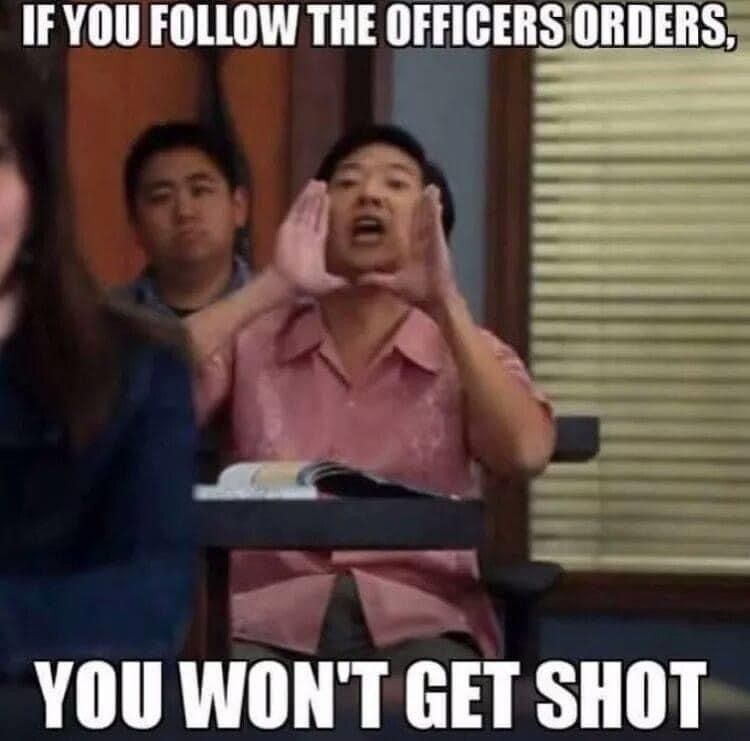Why Democrat Mayors Won’t Clean Up Crime
They’d rather preserve their politics than protect their cities

1. The Excuse Grinder: Complexities Instead of Consequences
Ask any Democrat mayor in America’s most troubled cities—Chicago, Memphis, New York, Washington, D.C.—why violent crime runs rampant, and you’ll get a variation of the same answer: “It’s complicated.” They invoke poverty, inequality, systemic racism, or the lack of economic opportunity. The narrative is always that crime is merely a symptom, never a choice.
That framing is useful because it shifts responsibility away from leadership. If crime is a “systemic” problem, then no mayor can ever really be blamed for failing to stop it. It becomes an eternal excuse machine—complex enough to guarantee endless studies, task forces, and “initiatives,” but never immediate results. What vanishes in the fog of rhetoric is the basic reality: criminals respond to deterrence. Arrests. Prosecutions. Consequences. Remove those, and criminals test boundaries until entire neighborhoods collapse into fear.
Instead of confronting that reality, city leaders cling to theories that sound empathetic but leave citizens vulnerable. When residents say they feel unsafe walking to the grocery store, leaders tell them to be patient while “root causes” are studied. That’s not governance—it’s abdication.
2. Politics Over Public Safety
Why won’t these mayors do what works? Because political survival trumps public safety.
In progressive circles, the loudest activists demand “restorative justice,” “abolitionist approaches,” and “alternatives to incarceration.” These sound noble in a classroom but crumble in the face of carjackings, home invasions, and homicides. Yet mayors depend on activist approval for campaign dollars and media protection, so they bow to the rhetoric.
Take Chicago. In 2025, shootings and homicides were down by about 30%, and robberies by 34% (Davis Vanguard, 2025; Axios, 2025). On paper, that looks like progress. But the perception on the ground is still that crime is out of control. Why? Because leaders refuse to reinforce the success with strong messaging about accountability. Instead, they brag about “community investment” while quietly allowing repeat offenders back on the street. In other words: even when things improve, politics forces them to pretend enforcement doesn’t matter.
The same story repeats in New York. Mayor Eric Adams publicly insists the city is safe, while subway stabbings and assaults dominate headlines. Residents ride with anxiety, not confidence. And in D.C., politicians hold press conferences about “addressing systemic inequities” while homicides creep higher than in decades. The throughline is simple: enforcement offends activists, so enforcement takes a back seat—even if it means public safety does too.
3. ‘Defund the Police’ Lives On—Just Hidden
Democrat mayors know “defund the police” turned into a political liability after the crime spikes of 2020–2021. But though the slogan disappeared, the spirit didn’t. Today it survives in budget diversions, quietly stripping resources from police departments and rerouting them into “community programs” and non-law enforcement responses.
On the surface, these programs promise to address crime at its “roots.” In practice, they replace cops with social workers who have no power to confront armed offenders. Meanwhile, officers face staffing shortages, dwindling morale, and early retirements. Recruitment numbers collapse. Those who stay wear body cameras, face lawsuits, and are told not to engage in proactive policing. Criminals notice.
Ironically, the mayors who hamstring their police forces never cut back on their own protection. They travel with taxpayer-funded security details, enjoy safe perimeters, and live in neighborhoods policed heavily. Their residents don’t get the same courtesy. Safety for the elite, chaos for everyone else. When violence spikes, leaders shrug and blame the “shortage of officers”—a shortage they engineered.
4. The Revolving Door of Justice
Even when police arrest criminals, many never face consequences because Democrat mayors rely on prosecutors who share their “restorative” outlook. Soft-on-crime district attorneys refuse to prosecute shoplifting, trespassing, or low-level drug charges. But here’s the truth: today’s petty thief often becomes tomorrow’s armed robber.
The revolving door turns endlessly. A carjacker is caught on Monday, arraigned Tuesday, back on the street Wednesday. By Friday, he’s arrested again—for something worse. Citizens watch this cycle repeat until confidence in the justice system erodes entirely. Victims feel abandoned. Cops feel betrayed. The only winners are the criminals who know that the “system” is built to forgive them endlessly.
This culture doesn’t emerge accidentally. It is cultivated by city leadership that insists “incarceration doesn’t work.” Yet New York in the 1990s and Chicago under earlier policing models proved otherwise: targeted enforcement and broken-windows policing cut crime drastically. It worked until progressive leadership dismantled it in the name of ideology.
5. Victimhood Politics as a Perverse Incentive
Another reason mayors won’t clean up crime is that crime itself feeds their political machine.
How? By framing criminals as victims. Mayors argue that offenders are “products of circumstance” who need government programs, not punishment. The worse crime looks, the more justification they have to demand federal and state dollars for “equity initiatives.” Those funds rarely translate into safer streets. They create new bureaucracies, more diversity coordinators, and more contracts for politically connected nonprofits.
In other words: chaos pays. Disorder isn’t treated as failure—it’s leveraged as proof that the city needs more programs, more funding, and more government oversight. Public safety doesn’t improve, but the political class thrives. Residents suffer in silence, watching storefronts close, graffiti linger, and neighborhoods crumble, while mayors collect applause at conferences about “systemic justice.”
6. Data Doesn’t Support the Partisan Playbook
Supporters of Democrat mayors often insist that Republicans would do no better. But data shows the real issue isn’t party—it’s political will.
A major Stanford/Harvard study found that whether a city elected a Democrat or Republican mayor made little difference in overall police staffing, criminal justice spending, or raw crime rates (Ferreira & Teso, 2024). What mattered was whether leaders were willing to take politically unpopular stances on enforcement.
Chicago’s own stats prove the point. In 2025, homicides, shootings, and robberies all dropped significantly (Davis Vanguard, 2025). Yet residents don’t feel safe because the enforcement that drove those reductions is never celebrated or expanded. Leaders downplay it for fear of offending their activist base. The Guardian (2025) even reported that crime overall has fallen nationwide, regardless of mayoral party, but cities with Democrat leadership remain more vulnerable to perception gaps and public distrust.
In short: enforcement works, but Democrat mayors refuse to lean into it. They prefer narratives about equity and systemic oppression, even when data shows deterrence is what actually reduces crime.
7. Real-World Violence That Still Happens
Crime statistics can bend downward, but for families shattered by tragedy, the numbers don’t matter.
Chicago’s River North mass shooting in July 2025 left four dead and fourteen injured (Wikipedia, 2025a). Memphis continues to suffer record carjackings and homicides per capita. Washington, D.C. logged over 250 homicides in 2024, the highest in decades. New York City’s subway system saw more than 500 felony assaults in the first half of 2025.
These stories repeat weekly: murders in parks, children killed by stray bullets, commuters shoved onto train tracks. Residents ask their leaders for safety and get press conferences about poverty instead. No mayor can spin away the reality of parents burying their children. Yet they try—by reframing every tragedy as evidence that “society failed” the perpetrator. Society didn’t fail. Leadership did.
8. Broken Windows, Broken Cities
The broken-windows theory is not complicated: visible disorder breeds more disorder. If graffiti stays, if vagrancy thrives, if petty theft goes unchecked, criminals assume the rules don’t apply. In the 1990s, New York embraced this philosophy and crime plummeted. Chicago’s CAPS program in 1993 did the same, cutting crime nearly in half before being abandoned (Wikipedia, 2025c).
Today, Democrat mayors dismiss broken windows as “discriminatory.” They say enforcing small crimes is unfair to marginalized groups. The result? Graffiti remains, shoplifters roam free, and neighborhoods signal lawlessness. Businesses close shop not because of systemic poverty but because leadership refuses to protect property. Instead of investing in order, mayors let disorder fester—then blame inequality when people flee.
9. Mayoral Focus on Causes, Not Cures
Even within the Democrat Party, cracks are showing. Former Chicago Mayor Rahm Emanuel, no conservative by any stretch, blasted today’s crop of leaders for focusing on niche social issues while ignoring safety, schools, and fiscal responsibility. He mocked them for fighting over bathrooms while children dodge bullets (New York Post, 2025).
Emanuel’s critique underscores the deeper problem: today’s Democrat mayors run on ideology, not outcomes. They obsess over root causes, which can take decades to address, while ignoring immediate solutions like deterrence, policing, and accountability. Of course root causes matter—but telling a grieving family that “generational poverty” is to blame offers no comfort. Enforcement saves lives now. Root causes can wait.
10. Federal Theater Masks Local Failure
With crime perception still high, President Trump has seized the opportunity, threatening National Guard deployments to cities like Chicago, D.C., and New York (Reuters, 2025). He calls them “lawless cities.” Mayors fire back that his actions are unconstitutional and insult their autonomy (Times of India, 2025).
Regardless of where one stands on Trump’s style, the bigger scandal is this: local leaders allowed the federal narrative to dominate because they never solved their own problems. Had they invested in enforcement, they could stand tall and say, “We’ve got this.” Instead, they cry federal overreach while residents wonder why it takes the threat of Trump to make safety even a talking point.
Why This Matters
The refusal of Democrat mayors to clean up crime isn’t just politics—it’s lived reality for millions. Families live in fear. Businesses board up. Children lose safe spaces. Cities hollow out.
It doesn’t have to be this way. History proves that deterrence works. Enforcement works. Broken-windows policing works. But none of it works if leaders lack the courage to upset their activist base. Today’s mayors choose politics over safety, excuses over enforcement, and perception over people. That’s why their cities continue to suffer.
The data doesn’t lie. Leadership does. And until voters demand accountability, nothing will change.
References
Axios. (2025, May 22). Chicago’s violent crime is declining, but Mayor Johnson isn’t getting credit. Axios Local. Retrieved from https://www.axios.com/local/chicago/2025/05/22/brandon-johnson-violence-homicides-declining-memorial-day-weekend
Davis Vanguard. (2025, August). Democratic mayors see crime reduction, but perception remains negative. Davis Vanguard. Retrieved from https://davisvanguard.org/2025/08/democratic-mayors-crime-reduction
Ferreira, F., & Teso, E. (2024). Does partisanship matter for local crime and policing? Science Advances, 10(25), adq8052. https://doi.org/10.1126/sciadv.adq8052
New York Post. (2025, March 1). Ex-Chicago Mayor Rahm Emanuel slams city leaders for fixating on niche liberal issues while crime spirals. Retrieved from https://nypost.com/2025/03/01/media/ex-chicago-mayor-rahm-emanuel-slams-city-leaders-for-fixating-on-niche-liberal-issues-while-crime-spirals
Reuters. (2025, August 22). Trump threatens federal intervention in Chicago, D.C., and New York. Reuters. Retrieved from https://www.reuters.com/world/us/trump-threatens-federal-intervention-chicago-government-takeover-dc-2025-08-22
The Guardian. (2025, August 15). How Trump is using ‘pure lies’ about high crime in U.S. cities to justify federal takeovers. The Guardian. Retrieved from https://www.theguardian.com/us-news/2025/aug/15/trump-dc-national-guard-crime-rates
Times of India. (2025, August 22). Chicago mayor hits out at Trump’s threat to send in National Guard. Times of India. Retrieved from https://timesofindia.indiatimes.com/world/us/uncalled-for-and-unsound-chicago-mayor-hits-out-at-donald-trumps-threat-to-send-in-national-guard-cites-crime-drop-legal-limits
Wikipedia. (2025a). 2025 Chicago shooting. Retrieved from https://en.wikipedia.org/wiki/2025_Chicago_shooting
Wikipedia. (2025b). Crime in Chicago. Retrieved from https://en.wikipedia.org/wiki/Crime_in_Chicago
Wikipedia. (2025c). Chicago Alternative Policing Strategy. Retrieved from https://en.wikipedia.org/wiki/Chicago_Alternative_Policing_Strategy
Disclaimer:
The views expressed in this post are opinions of the author for educational and commentary purposes only. They are not statements of fact about any individual or organization, and should not be construed as legal, medical, or financial advice. References to public figures and institutions are based on publicly available sources cited in the article. Any resemblance beyond these references is coincidental.











